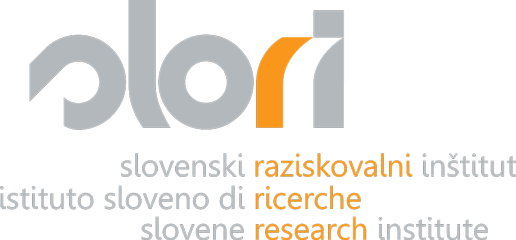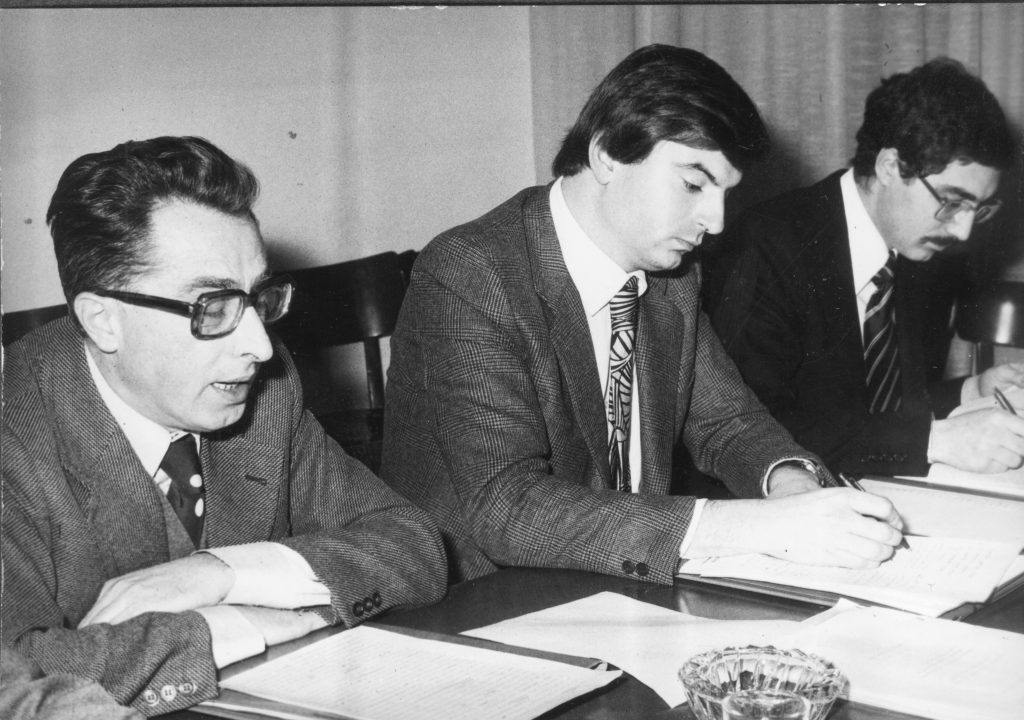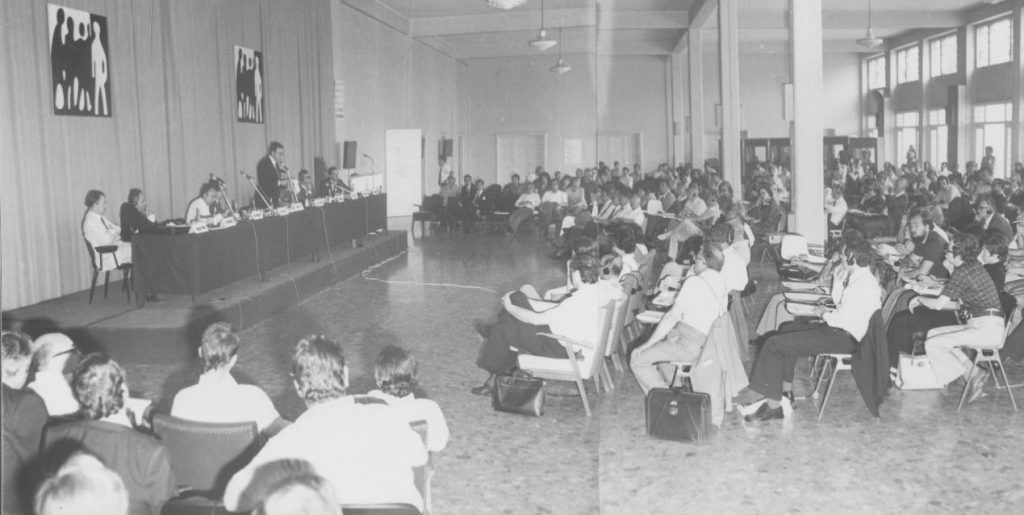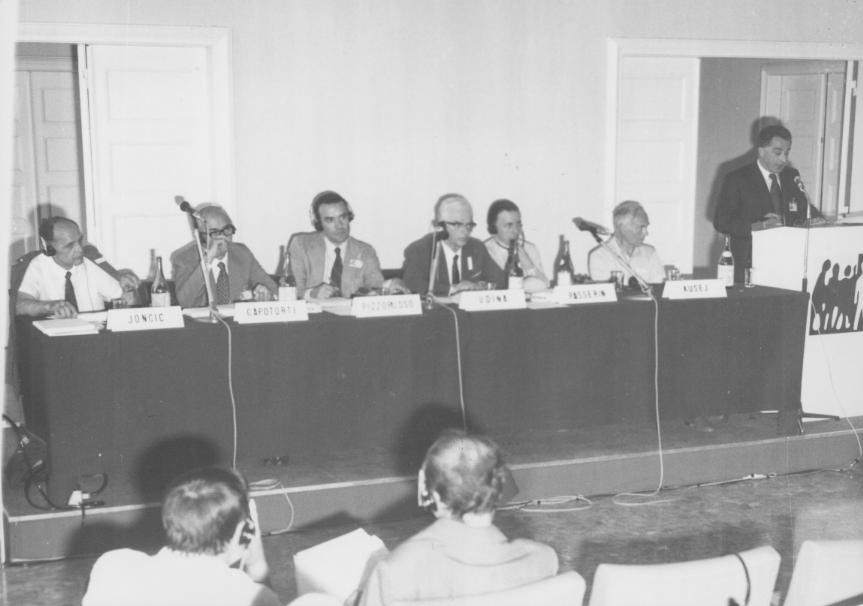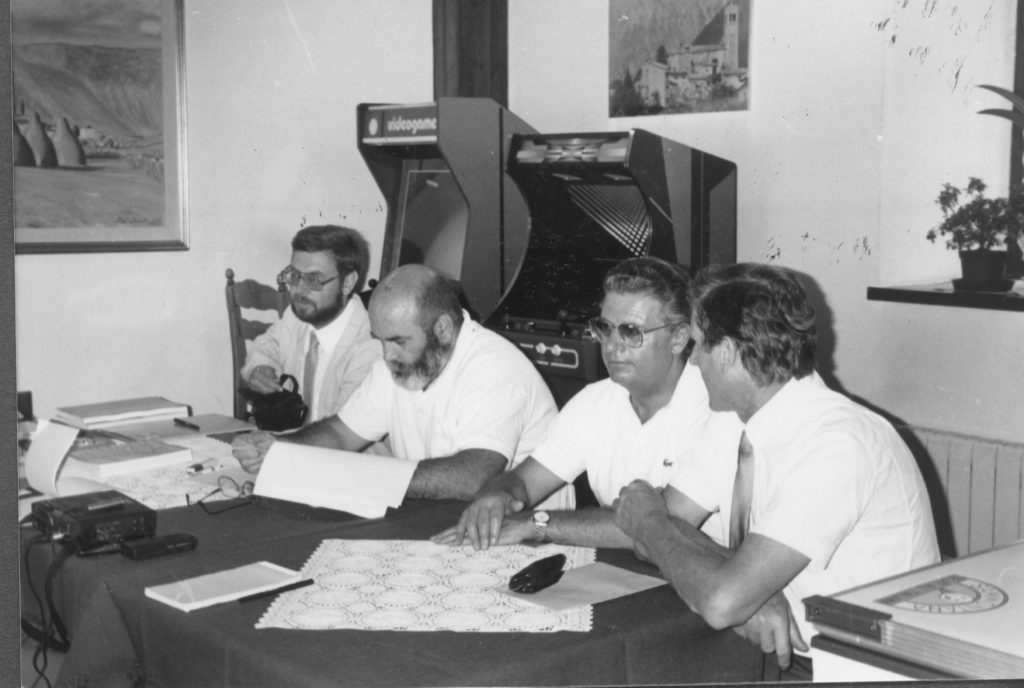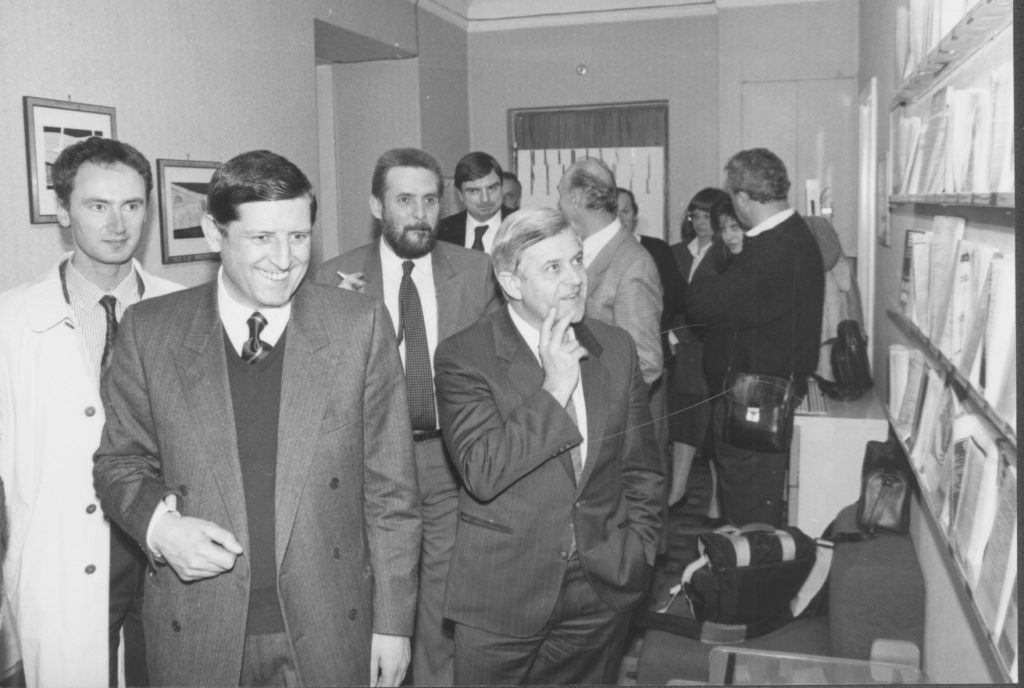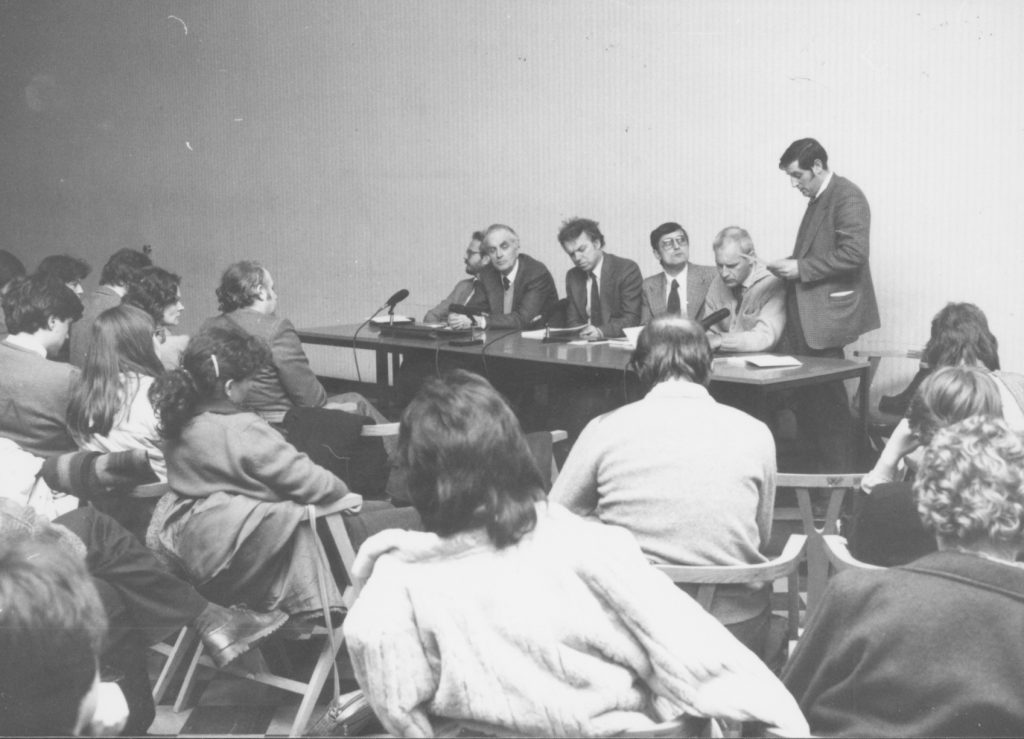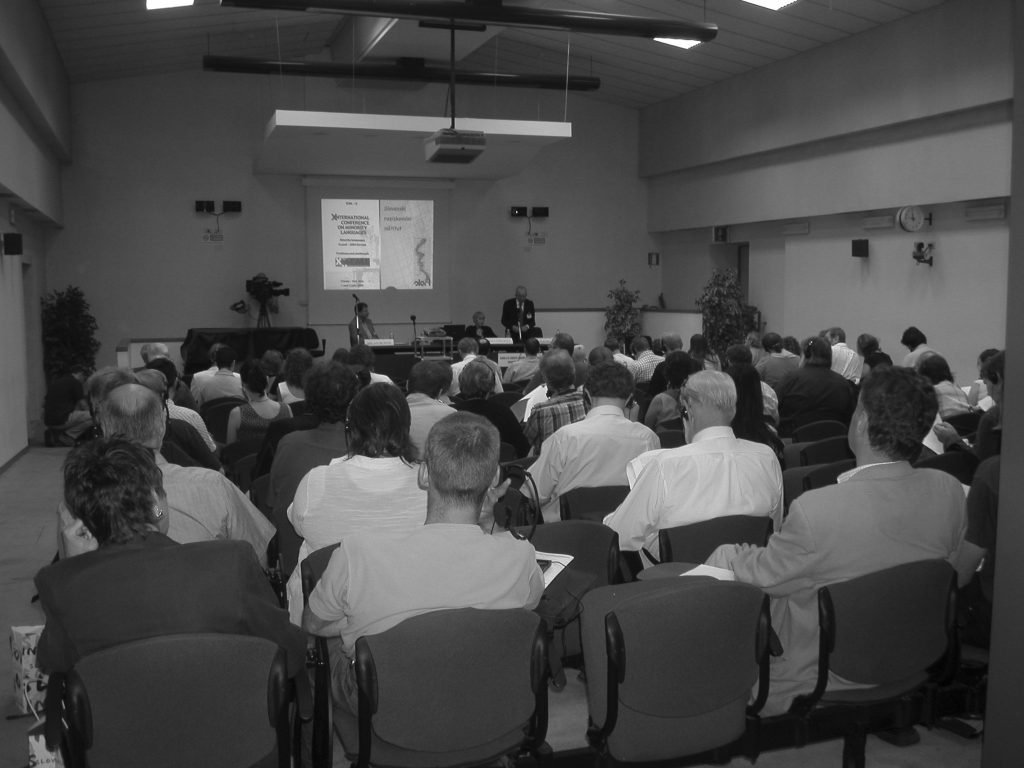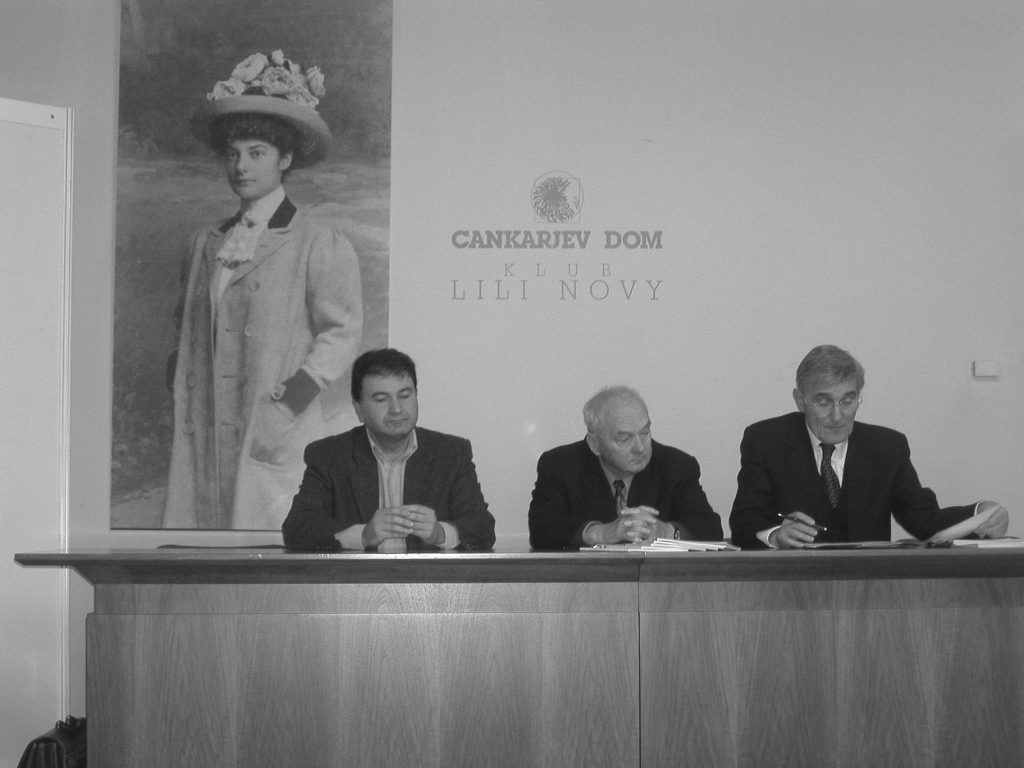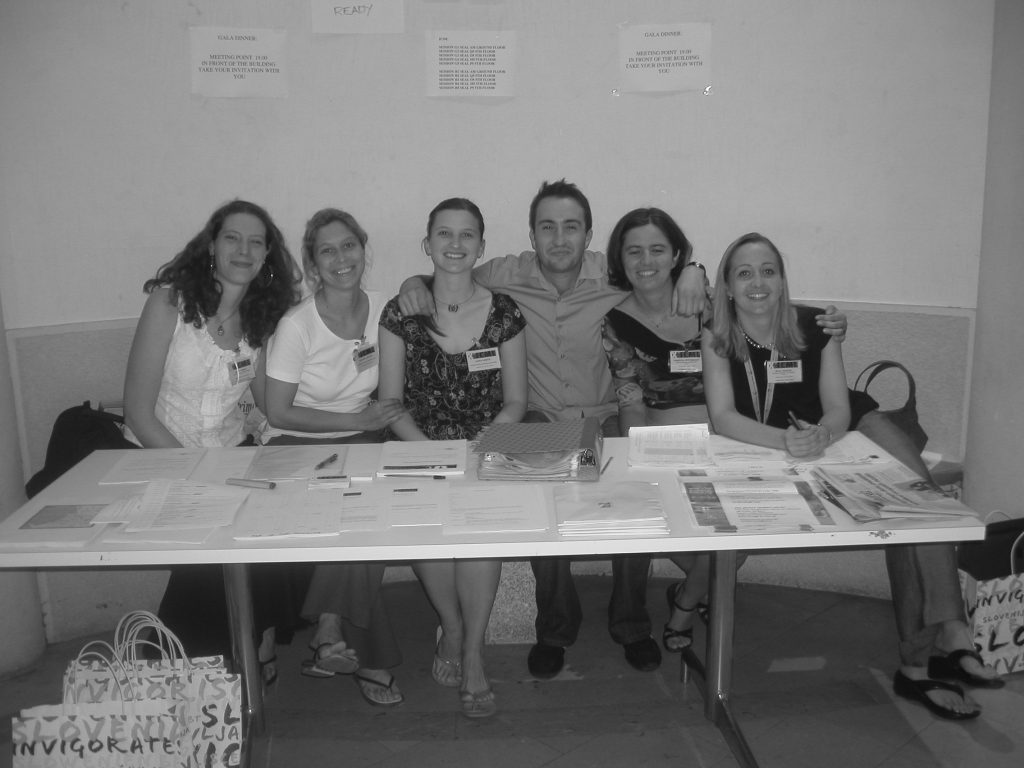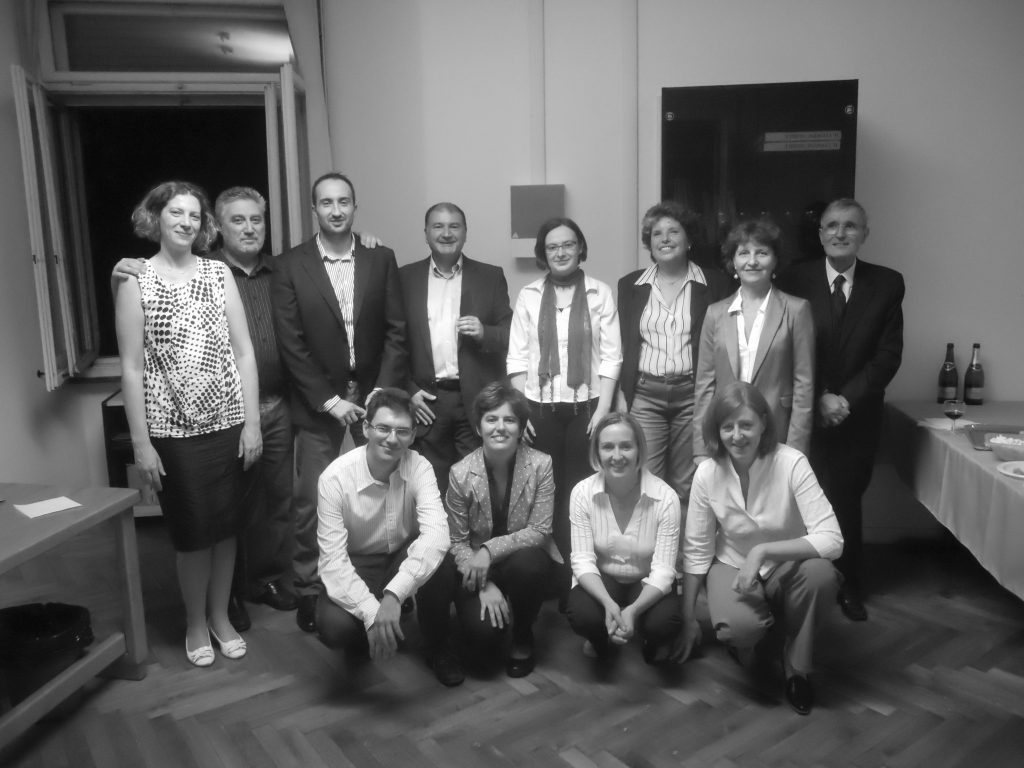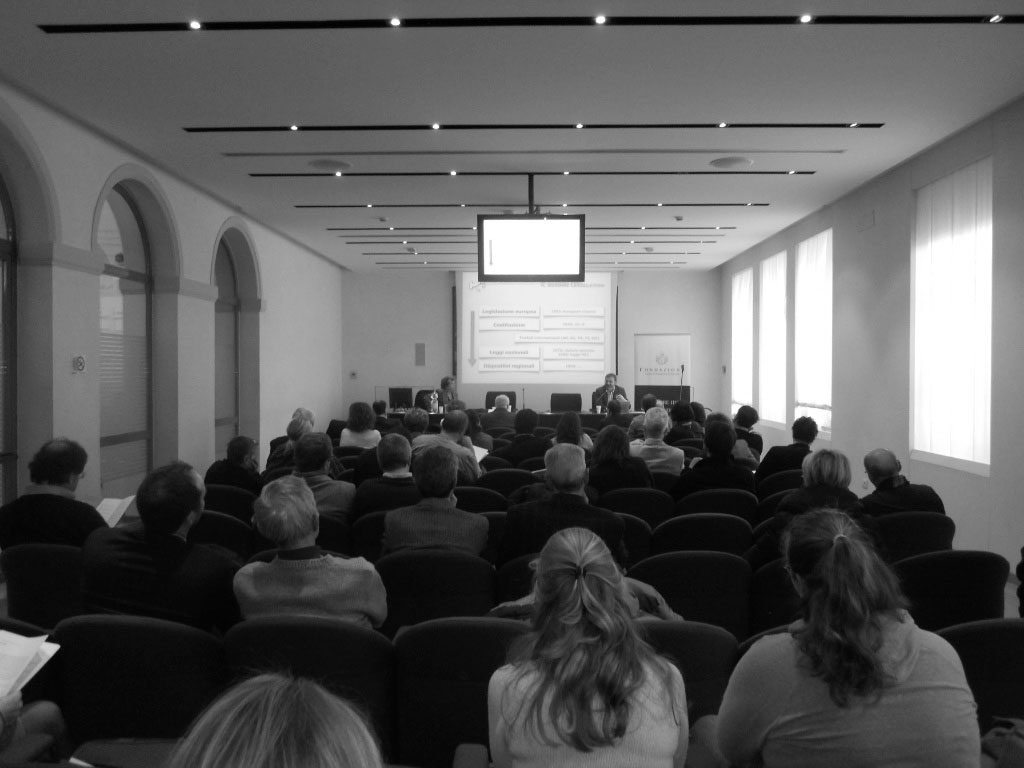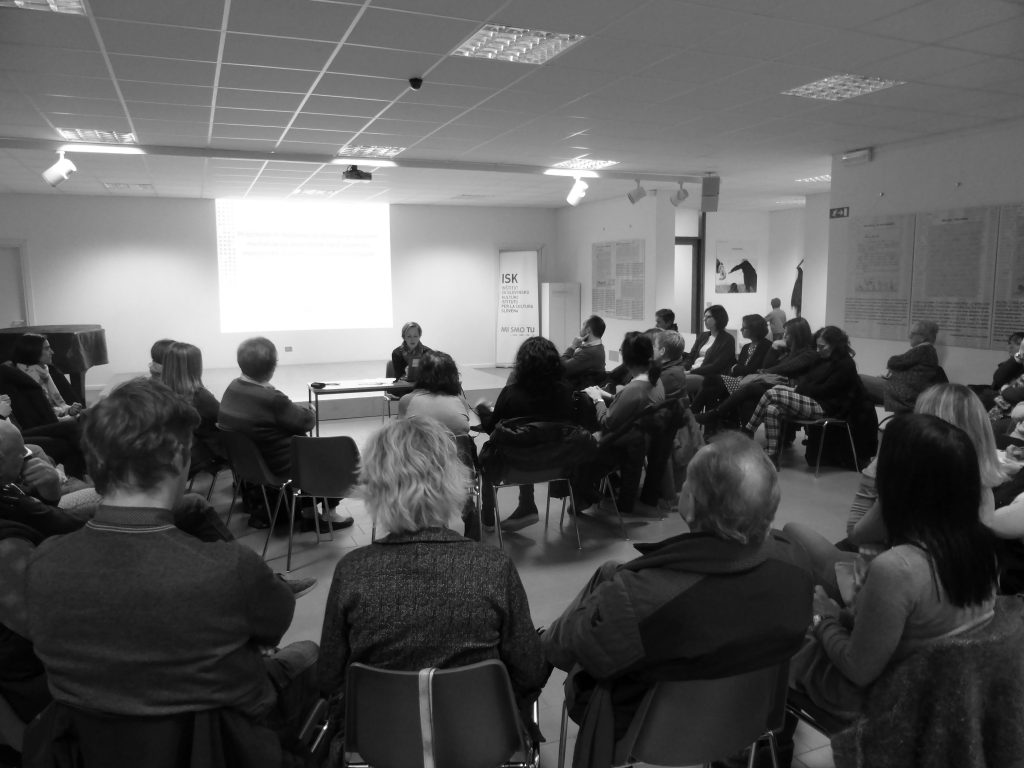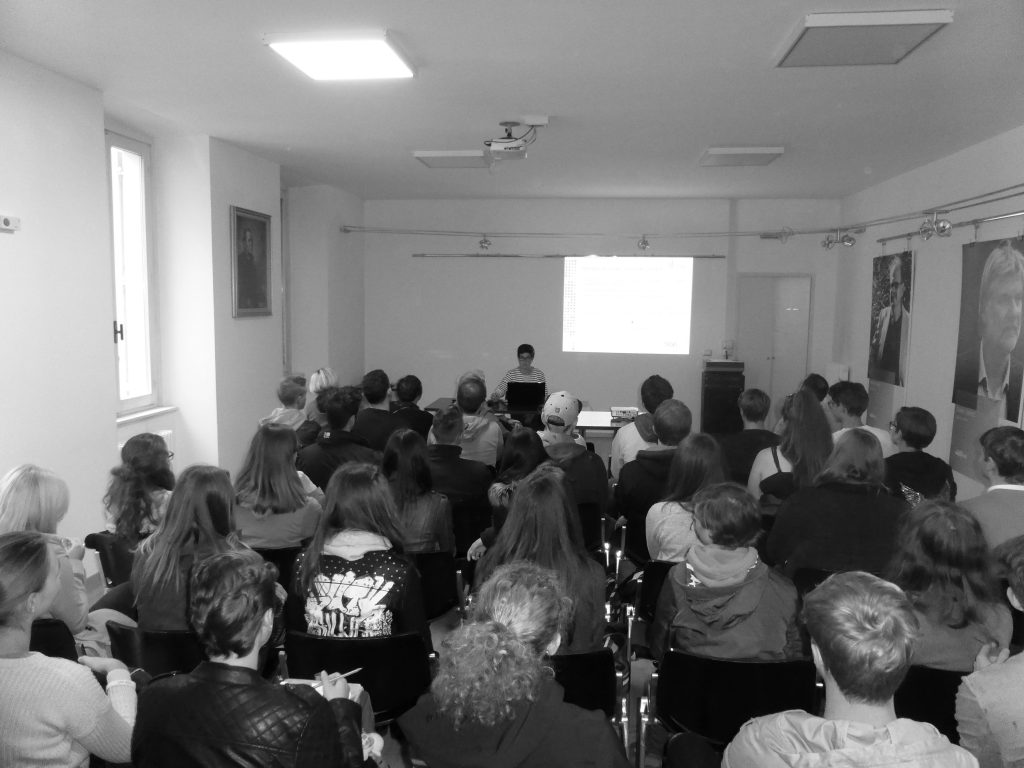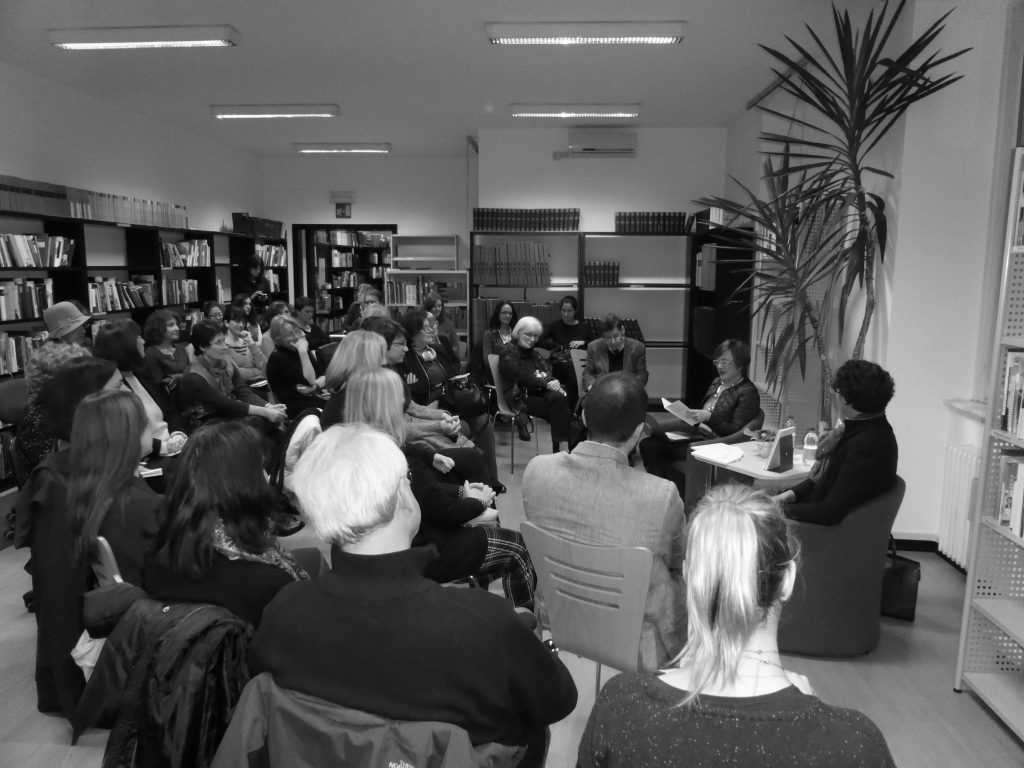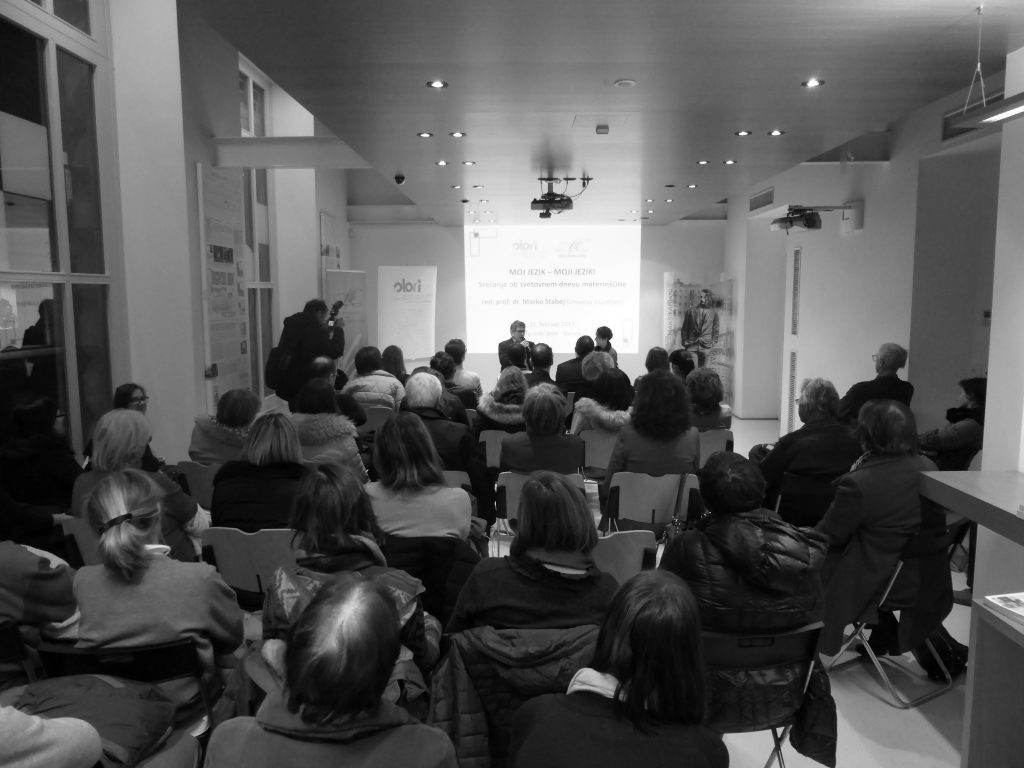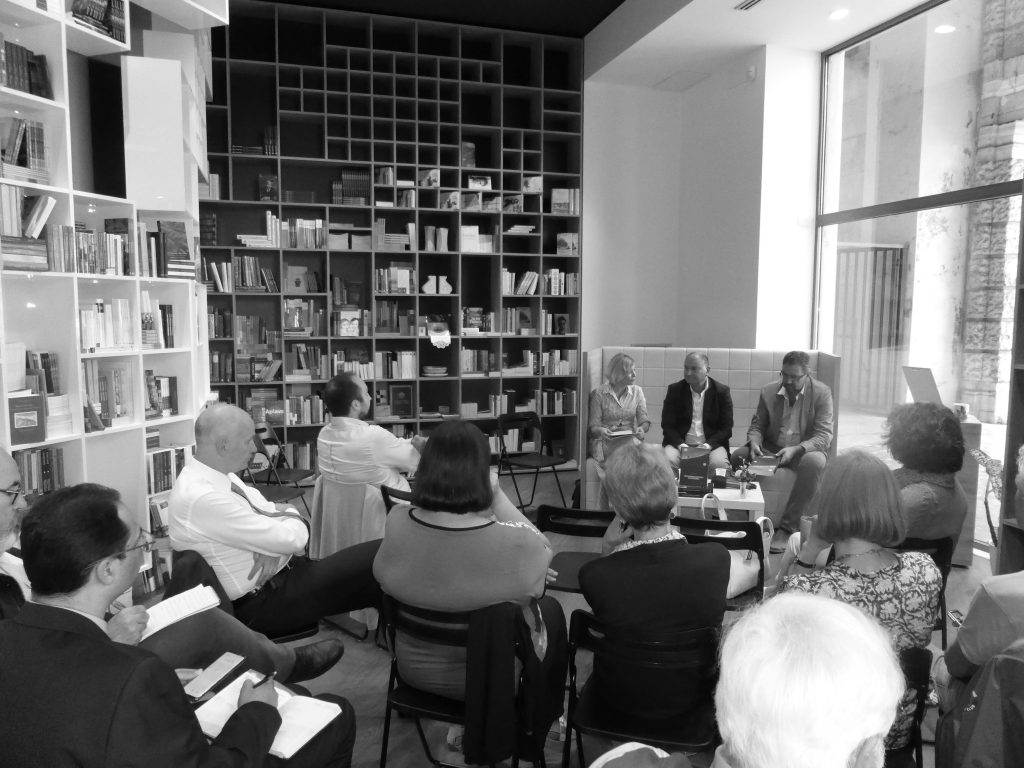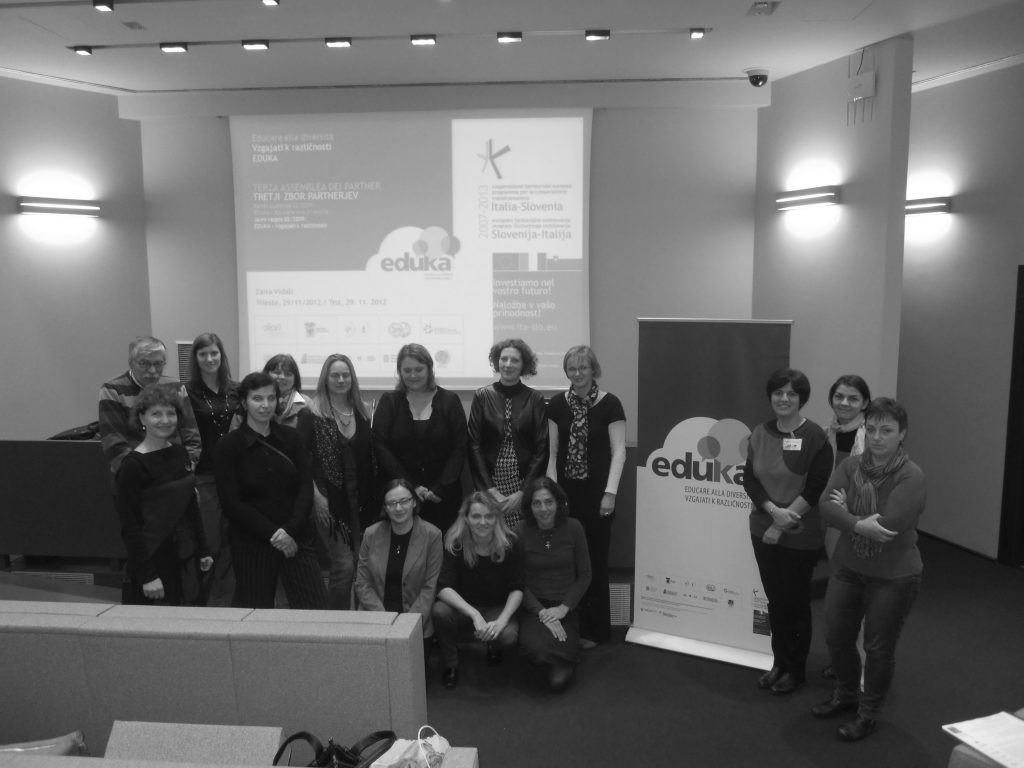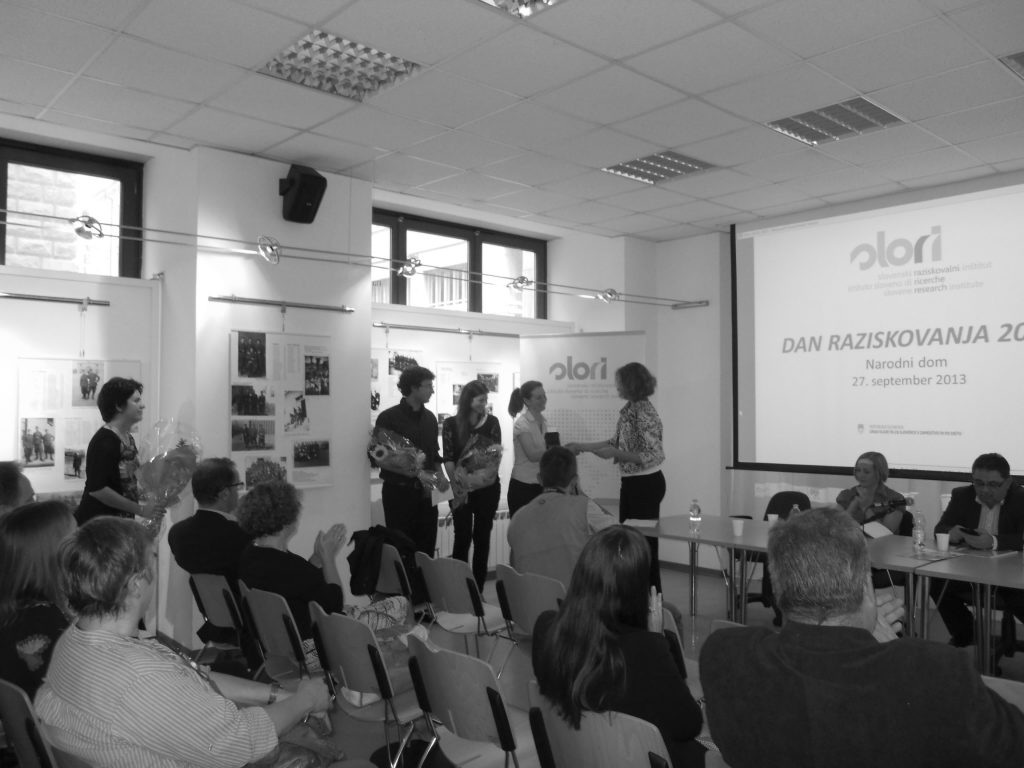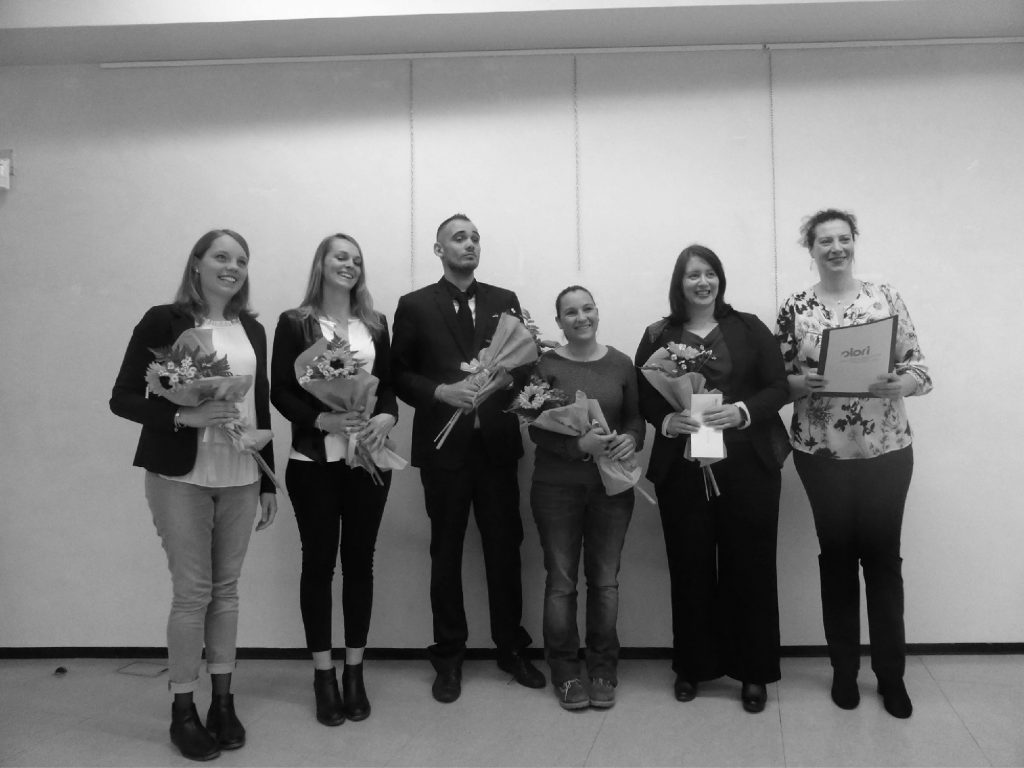At the beginning of the 1960s, the need for an institution able to provide information, analysis and political and scientific studies on the status of the Slovene community in Italy became apparent. The members of the Slovene ethnic minority in Italy felt that such an institution was essential for the development of the whole community and its involvement in the cultural, political and economic spheres.
Such a need resulted from the efforts of the Slovenian minority to enforce its indisputable rights within the framework of national and regional legislation since the end of the Second World War, as well as from its desire to take active part in sectors which required a deeper and more documented knowledge in order to organize, preserve and strengthen the Slovene ethnic identity. The growing demand for a scientific approach in studying concerns relating to the minority reflected the general desire of the Slovene community to play an active role in the research field, too. It was clear that only an institute established and run by individuals belonging to the minority could adequately engage in the study of the complex problems faced by this community, while at the same time focusing on the community’s expectations and objectives for the future. The institute would be entrusted with analysing the dynamic events and changes happening both within the minority and externally, in order to ensure a prompt and proactive reaction to new challenges.
Karel Šiškovič
These ideas found a concrete implementation in 1972-73, when the largest Slovene minority organization, the Slovene Cultural and Economic Union (Slovenska kulturno-gospodarska zveza – SKGZ) established a research committee led by Karel Šiškovič. Although the committee also conducted some research work, it focused primarily on drafting a list of potential collaborators of the future institute.
Further progress in establishing a research institute was made at the International Conference of Minorities in Trieste, which required a strong participation of experts belonging to the Slovene minority in Italy.
On 21st June 1974, the Slovene Research Institute – SLORI was officially founded.
From the very beginning the Institute could count on the help of two scientific institutes in Slovenia: the Institute for Ethnic Studies (Inštitut za narodnostna vprašanja) and the Geography Institute (Inštitut za geografijo). In the same period, two similar minority research institutes were founded by the members of the Slovene ethnic minority in Austria and the Italian ethnic minority in Yugoslavia. The Slovene Research Institute established good relations with them both.
The Institute started its research with limited staff and modest infrastructure. During its first period of activity, the Institute’s employees were mainly responsible for organizing and coordinating the work of active fellows and that of several university and secondary school students. Thanks to their contributions, the Institute presented as many as 15 papers and 3 scientific publications in different languages at the 1974 International Conference on Minorities.
Offices in Trieste, Gorizia, Cividale and Val Canale
The opening of the Institute’s first office in Trieste was followed by other offices that opened between 1976 and 1983 in Gorizia, Cividale and Val Canale. Thanks to the topics addressed and the contributions of its members, soon SLORI’s activities covered the entire region inhabited by the Slovene-speaking population in Italy, stretching from Tarvisio to Muggia. After its Provincial offices were established, with a consequent increase in the number of staff members, the core of the Institute’s research work was no longer conducted by staff members themselves, but was entrusted to a group of full-time researchers.
First important study meetings
Thus, researchers carried out most of the Institute’s activities. The realization of four large study meetings reflected the need for bridging the gaps in knowledge about the Slovene minority in Italy and its status. From this point of view, the study meetings were successful, but at the same time they clearly showed how much work still needed to be done by the Slovene ethnic community in order to move from occasional discussions about minority concerns to regular and systematic monitoring of the main social processes occurring within this community.
In the next few years, the Slovene Research Institute was actively engaged in creating its own scientific library and a documentation database, while also conducting more in-depth studies on the social and living space of the Slovene minority in Italy.
During this period, several researches were commissioned to the Institute, both from the European Economic Community and local bodies. On the other hand, the local government of the Friuli Venezia Giulia Autonomous Region, the region’s Provinces and its largest municipalities failed to recognize the Institute’s potential and support its future growth.
Darko Bratina
The year 1982 saw the death of Karel Šiškovič, then Institute director, who had had a decisive role in establishing and fostering the development of social and political studies within the Slovene minority in Italy. He was succeeded by Darko Bratina, who went to great lengths to reorganize the Institute’s structure and activities by introducing a new research approach. In line with this approach, the Institute’s research activity now focused on the fields of expertise of each individual researcher, while the projects were divided into three different groups:
– basic research, which was mainly theoretical;
– applied empirical research, dealing with concerns of direct interest to the minority;
– “first aid” research studies aimed at meeting the demands of various institutions and organisations.
With the odd exception (which mainly depended on external factors) these levels continued to complement each other over the years. The realization of the above-mentioned programme required both organizational changes and changes relating to the Institute’s payroll.
In the 1980s, the Institute became a truly respected research institution. Besides conducting research activities, it also offered extensive translation and interpreting services. Moreover, it established a close collaboration with several institutions, organizations and universities. In 1991, it signed a formal collaboration charter with the University of Trieste. At last, the local government of the Friuli Venezia Giulia Autonomous Region recognized the Institute’s vital role and included it on the list of research institutes entitled to a subsidy for cross-border cultural activities, as stated in the Treaty of Osimo, which was signed by Italy and Yugoslavia in 1975.
Renewal of research infrastructure
In spite of chronic budget restrictions, in the mid-1980s the Slovene Research Institute made considerable efforts towards the renewal of its research infrastructure, particularly regarding additions to its collection of specialized books and journals, the refurbishment of several offices, the introduction of ICT in research work and the reorganisation of its administration.
The late 1980s were marked by important scientific results and events, which contributed to a wider recognition of the Institute in the social and cultural field. At the same time, SLORI was facing growing financial hardship and uncertainty, a condition common to many Slovene organizations operating in Italy.
Long-term balance plan
As a result, the Institute’s management decided to put in place a long-term balance plan, which included the adoption of tighter financial measures. Thanks to constant management supervision, the dismissal of some members staff, alongside with the unexpected death of two regular collaborators, severe restrictions in ordinary expenses and some extra-ordinary financial subsidies granted by the Friuli Venezia Giulia Autonomous Region, the two Slovene umbrella organizations in Italy and the Ministry of Foreign Affairs of the Republic of Slovenia, the balance plan was successfully implemented.
In the 1990s, three unexpected deaths had a significant impact on the Institute’s activities. The year 1994 marked the death of Pavel Stranj, who had greatly contributed to the Institute’s research activities, especially in demographic and education research-projects, and worked with selfless dedication, drawing on a strong scientific background in social studies. In 1996, another Institute’s researcher suddenly died. Salvatore Venosi was the director of the Institute’s branch in the Val Canale from the onset and had made selfless contributions to the Institute’s research work and cultural activities by and large. In 1997, Darko Bratina‘s unexpected death followed. Bratina had actively cooperated with the Institute in organising and running research projects, and greatly contributed to its restructuring. He had succeeded Karel Šiškovič’s as the Institute’s director and had given new impetus to the Institute’s activities. Even when he ascended to the highest ranks of political representation, he closely followed the Institute’s research activity and continued to care for its future development.
In 1991, the Friuli Venezia Giulia Autonomous Region approved the law on border areas and the Institute was included on the list of Slovene organizations that were entitled to a State subsidy. In 1992, during an extraordinary assembly, the statute of the Research Institute was modified in part, which resulted in changes to its organisational structure.
“Think global, act local”
Considering recent events on both local and European level, such as the approval of legal protection laws for linguistic minorities in Italy, Slovenia’s entry into the European Union and the acceleration of international integration processes, the Institute will continue to follow the research approach it has developed over the years, in line with the motto: “think global, act local”. More specifically, global thinking refers to both distant and neighbouring European countries, whereas local action concerns the social environment of the Slovene minority in Italy. Thus, the Institute must continue to be actively involved in both contexts, since it cannot be an impartial witness to events which have such a significant impact on the Slovene minority. Clearly, the Institute’s future role and raison d’être will not depend on the attention it has dedicated to such events in the past, but rather on its interest in present and future challenges.
At the General Assembly in 2006, after a long debate, SLORI asserted its independence in decision-making by accepting a resolution on the basis of which, as of 2007, the Institute would only operate in one location in Trieste. This resolution took into account financial forecasts and the fact that, in consideration of recent mobility improvements, various offices with administrative personnel are no longer needed, since nowadays researchers can carry out most of their work from home. Nevertheless, it was concluded that at least one operating office must be preserved to serve as a working space for young researchers where they can access specialized bibliography.
Employee training
Despite having faced various difficulties in the past, SLORI can now rely on a strong and fairly young research team. These experts possess excellent skills and have shown great determination, vitality and excellent scientific skills over the years. The research papers they drafted for the programmatic conference in 2002 have contributed considerably to the conference’s success. Moreover, by organising the International Conference on Minority Languages in Trieste in 2005, SLORI gained prestige on the international scientific scene in the field of ethnic studies. Since then, the Institute’s staff has been growing steadily. Today, our team includes five PhD holders and three members of staff with a Master’s degree.
Basic research projects and applied projects
The Institute traditionally conducts basic research projects on topics relating to the post-graduate study courses of its collaborators, who carry on the tradition of success in the field of scientific self-examination. The Institute also carries out applied projects, which address tangible, day-to-day problems regarding the Slovene minority. Thanks to these projects, SLORI and its collaborators have contributed greatly to the development of the Slovene sociological research sector. This will undoubtedly result in new development opportunities and will ensure a greater role of the Slovene minority in an ethnically mixed environment.
Education and the Slovene language
Since its foundation, the foremost aims of SLORI’s research and activities within the Slovene minority have been education and the Slovene language. Special attention has been paid to new proposals regarding education in schools, learning processes and attempts to establish a closer link between the school and the surrounding environment, as well as to future development opportunities following Slovenia’s entry into the European Union. SLORI has regularly monitored the structural changes that have been taking place in Slovene-language schools and in the social environment in which these operate. It has also been following enrolment trends in both Slovene-language schools and Italian-language schools. Moreover, the Institute has been paying close attention to the social and linguistic processes that occur at all levels, both internally among individuals belonging to the Slovene community, and externally, during interactions between the Slovene minority and other language and ethnic groups. In 2019 a working group for the Slovene language was established. This group provides technical assistance in language strategy and language policy planning and offers a variety of other services, such as: consulting and training activities, the preparation of support material, proofreading, research activities, promotional activities and other types of linguistic support offered to the Slovene ethnic minority.
Congresses, conferences, round tables, publications
The Institute has a crucial role in disseminating research results, as well as in the organisation of conferences, consultations and round tables at local, national (Slovene and Italian) and international level. These events are dedicated to various current and topical aspects regarding the state of affairs and the development of the Slovene community in Italy and other minorities by and large. Since its foundation SLORI has published over 200 specialized and scientific works, either independently or in collaboration with other organisations. In addition, it is worth mentioning the contributions of the institute’s collaborators that have been published in scientific or research publications at both local and international level.
European projects
Considering the recent developments in European integration processes, particularly after Slovenia’s entry into the EU, SLORI has reinforced its traditional role as a mediator between the Slovenian-speaking and the Italian-speaking population. By promoting several European and cross-border projects, the Institute has created a tight network and has established a close cooperation with players in the Slovenian and Italian research sector, as well as with other minority organisations on both sides of the border. SLORI has also adopted a similar approach on a local level by promoting continuous dialogue and collaboration with public administration bodies, universities and other institutions, so as to put in practice the principle of positive integration with the majority population, which is based on communication, mutual understanding and cooperation.
The Institute also offers educational and career guidance to undergraduate and postgraduate students and therefore acts as a mediator between different Slovene and Italian universities with the aim of further developing and promoting the minority’s intellectual potential. Special attention is paid to the creation of a broad information network and a knowledge bank. As regards the protection and development of the intellectual potential within the Slovene ethnic community in Italy, it will be necessary to conduct a detailed analysis of the structure, breadth and dynamism of the Slovene presence outside the long-standing minority, especially in the Italian environment.
New challenges
Considering both the present and future challenges, it is clear that the Institute must continue to play an active role in defining and adapting to new equilibriums, and put its professional and research activity to use in order to better understand contemporary problems in various fields of society and interethnic relations.
